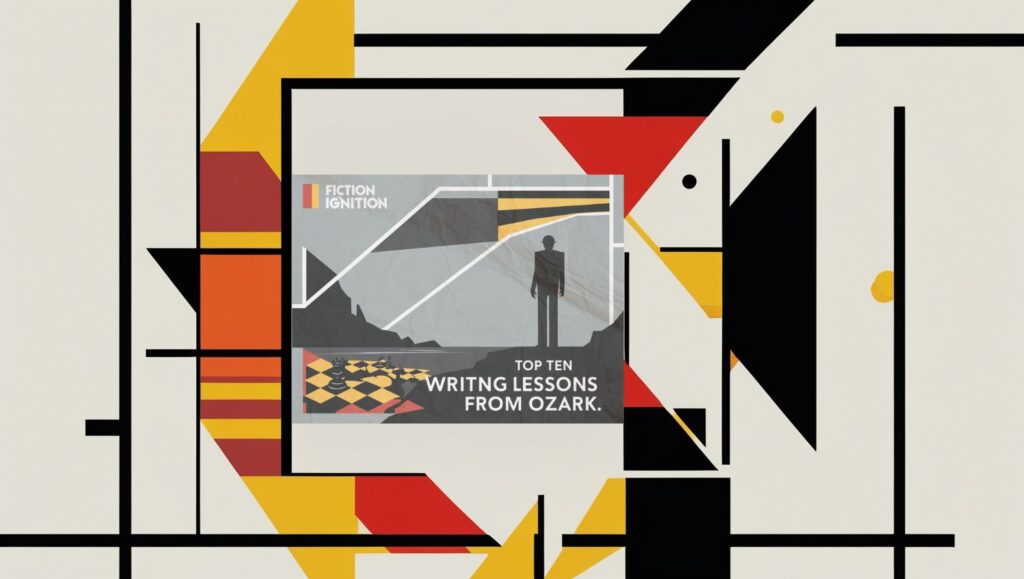In Memory of a Creative Titan
Hello, Fiction Igniters! Today, we’re gathered around the literary campfire with heavy hearts. David Lynch, the legendary filmmaker and creative maverick, passed away on January 15, 2024. His legacy is an eternal blaze of inspiration for artists, storytellers, and, yes, us fiction writers. From Twin Peaks to Blue Velvet, Lynch’s work was a kaleidoscope of dark mystery, surreal beauty, and raw emotion.
So today, in honor of the man who fearlessly embraced the weird, the wonderful, and the otherworldly, I’m counting down the Top 10 Things I Learned About Writing from David Lynch. Each of these lessons is a spark you can use to ignite your own storytelling.
Without further ado, let’s dive into the strange and magical world of Lynchian wisdom.
10. Embrace the Mystery
Lynch once said, “I love mysteries. They’re like seeds that lead to more mysteries.” His work—from the cryptic murder of Laura Palmer to the unsettling oddities of Eraserhead—reminds us that not every question needs an answer.
As writers, we can fall into the trap of overexplaining, tying up every loose end. But Lynch’s stories show us the power of leaving some things unsaid. A great mystery lingers in the reader’s mind, inviting them to engage and interpret. Think of the eerie monolith in Arthur C. Clarke’s 2001: A Space Odyssey or the ambiguity of the ending in Shirley Jackson’s The Lottery.
Actionable Tip: Add layers of intrigue by leaving some elements open-ended. Let your readers wonder. Plant seeds of mystery in your narrative and trust their curiosity.
9. Find Beauty in the Strange
Lynch had a knack for uncovering beauty in the bizarre. His unsettling imagery often carried an emotional truth—a poignant mix of horror and wonder. Think of the unsettling beauty of Dorothy Vallens’ haunting rendition of “Blue Velvet” or the mysterious Red Room from Twin Peaks.
Writers can learn to infuse their stories with this duality. Even the grotesque can reveal something deeply human. Take Mary Shelley’s Frankenstein. The monster is horrifying, but his longing for connection is heartbreakingly relatable.
Actionable Tip: When crafting scenes, ask yourself: How can I contrast the beautiful with the strange? Add an unexpected detail that’s unsettling but emotionally resonant.
8. Meditation Unlocks Creativity
Lynch was a lifelong practitioner of transcendental meditation, which he credited with opening the floodgates of creativity. In his book Catching the Big Fish, he compares ideas to fish—to catch the best ones, you need to dive deep into still waters.
As writers, our minds often feel cluttered. Meditation, journaling, or even a quiet walk can help you connect with your subconscious. That’s where the wildest ideas live.
Actionable Tip: Dedicate 10 minutes daily to sitting in silence. Observe your thoughts without judgment. You’ll be amazed at the clarity this brings to your storytelling.
7. The Power of Atmosphere
If you’ve ever felt the eerie, dreamlike tension of a Lynch film, you know how crucial atmosphere is. It’s not just the plot that pulls you in—it’s the mood.
Consider Daphne du Maurier’s Rebecca. The novel’s gothic atmosphere is so thick, it’s practically a character. Lynch teaches us that setting and tone can transform a simple story into an unforgettable experience.
Actionable Tip: Use sensory details to build atmosphere. Describe the smell of rain-soaked wood, the hum of distant machinery, or the flickering glow of a neon sign. Atmosphere isn’t about quantity of detail; it’s about the right detail.
6. Collaborate, but Stay True to Your Vision
David Lynch worked with incredible actors, composers, and production teams, yet his vision remained singular. He knew when to listen and when to trust his instincts.
For writers, collaboration often comes in the form of editors or critique partners. While their feedback is invaluable, Lynch’s career reminds us to stay true to our voice.
Actionable Tip: Accept feedback, but filter it through your creative lens. If a suggestion feels wrong, trust your gut.
5. Dream Logic Is Story Logic
Lynch’s narratives often follow a dreamlike logic. Events don’t always make linear sense, but they feel emotionally true. This can be a powerful tool in fiction.
Take Gabriel García Márquez’s One Hundred Years of Solitude. The novel’s surreal elements resonate because they tap into universal emotions. Lynch shows us that even the strangest stories can connect deeply with readers when grounded in emotional truth.
Actionable Tip: Experiment with dream logic in your writing. Let scenes unfold unpredictably but keep the emotional core intact.
4. Music Is the Soul of a Scene
Lynch’s partnership with composer Angelo Badalamenti gave us some of the most iconic soundtracks in film history. Music wasn’t just background noise—it was an integral part of the storytelling.
While fiction writers don’t have soundtracks, we can use rhythm, pacing, and tone to create a musicality in our prose. Think of the hypnotic cadence of Edgar Allan Poe’s The Raven or the lyrical quality of Toni Morrison’s Beloved.
Actionable Tip: Read your work aloud to find its rhythm. Adjust sentences to create a flow that mirrors the mood you’re aiming for.
3. Don’t Be Afraid to Go Dark
Lynch didn’t shy away from exploring the darkness within human nature. His stories often peeled back the facade of normalcy to reveal something raw and unsettling.
For writers, this means embracing the uncomfortable. Stories like Gillian Flynn’s Gone Girl or Cormac McCarthy’s The Road show that confronting darkness can lead to profound insights.
Actionable Tip: Push past your comfort zone. Write about the fears, flaws, and truths that scare you the most.
2. The Mundane Can Be Extraordinary
Lynch had a gift for making the ordinary extraordinary. A cup of coffee, a ceiling fan, or a diner at night became charged with meaning in his hands.
Raymond Carver’s short stories often achieve a similar effect. By focusing on small, everyday moments, he uncovers universal truths.
Actionable Tip: Look for magic in the mundane. Add depth to your story by focusing on seemingly trivial details that reveal character or theme.
1. Trust Your Weirdness
And here we are, Fiction Igniters, at the number one lesson from David Lynch: trust your weirdness.
Lynch didn’t just embrace his unique perspective; he celebrated it. He showed us that originality isn’t just valuable—it’s essential.
Think of J.K. Rowling’s courage in creating a story about a boy wizard or Kurt Vonnegut’s absurdist humor in Slaughterhouse-Five. Their willingness to be unapologetically themselves is what made their work stand out.
Actionable Tip: Write the story only you can write. Lean into your quirks and unique perspective. That’s where the magic lives.
Farewell to a Master
David Lynch’s passing leaves a void in the world of storytelling, but his lessons will burn brightly for generations. So, Fiction Igniters, as we bid farewell to this creative titan, let’s carry his flame forward. Write fearlessly. Create boldly. And remember, don’t write—ignite!









